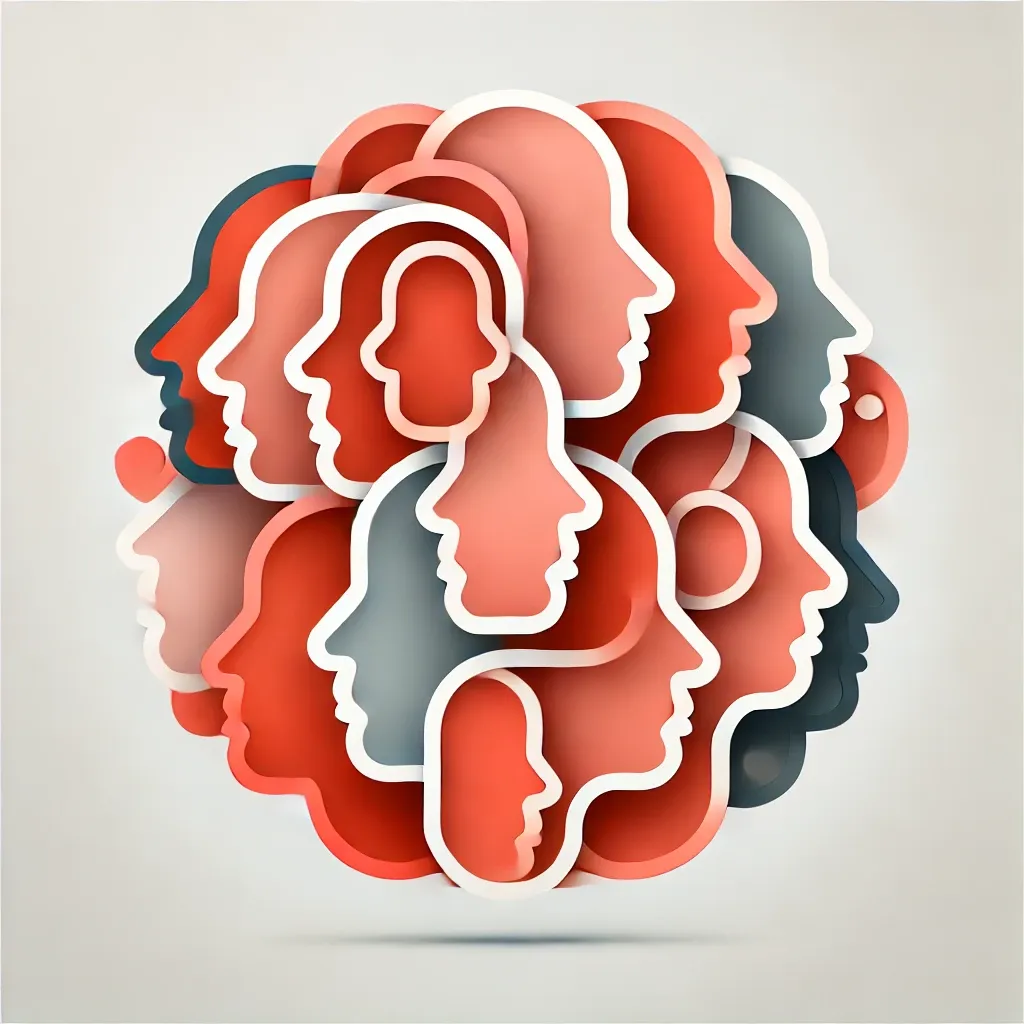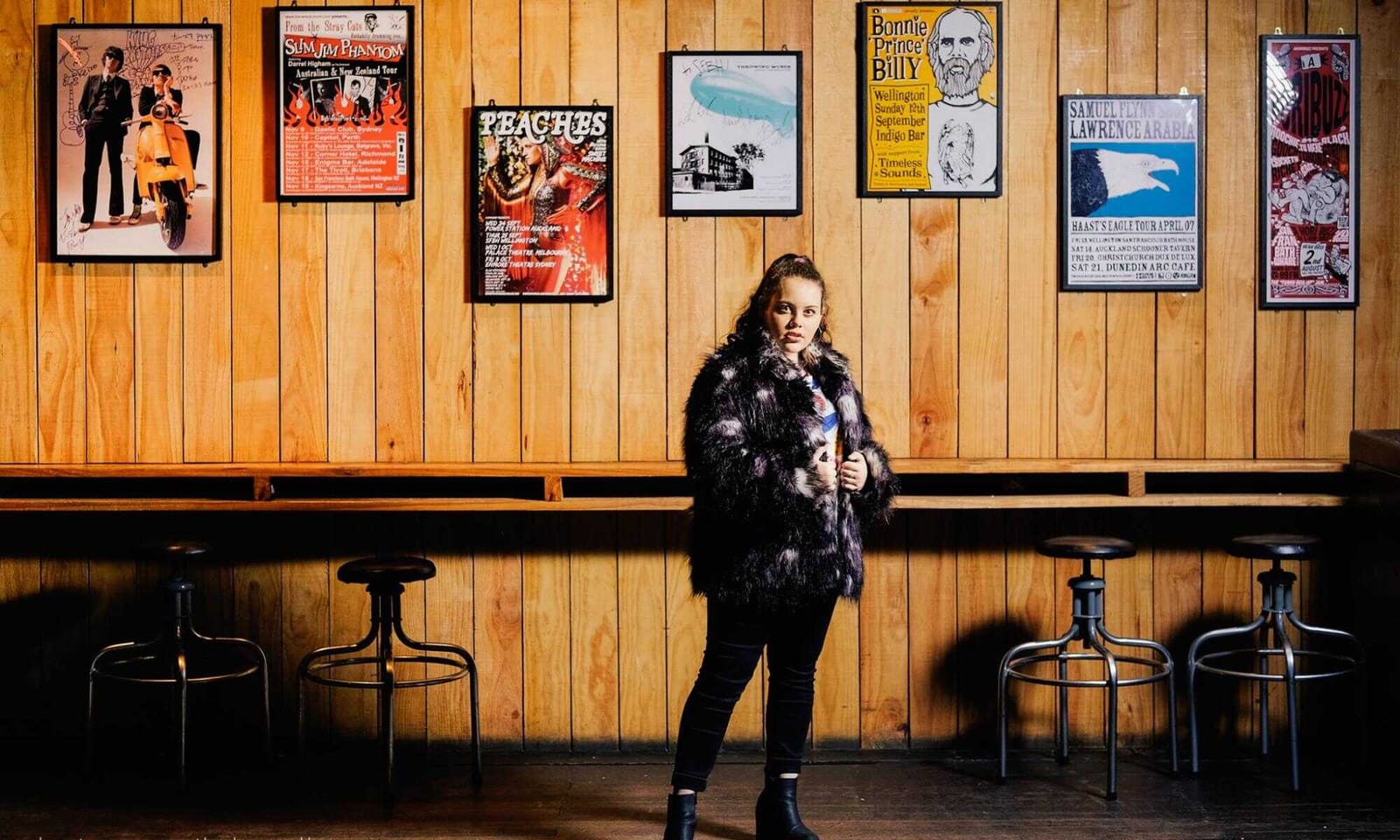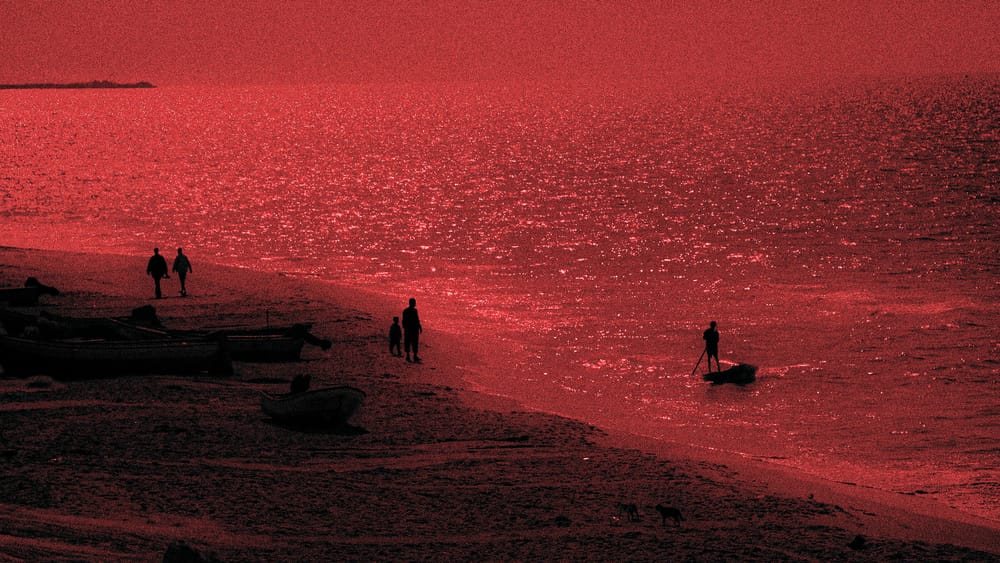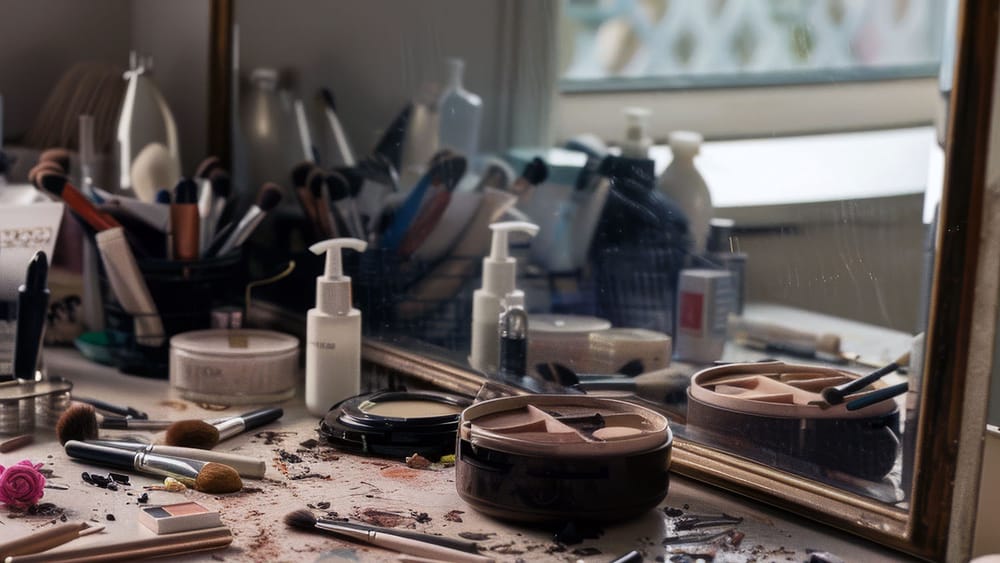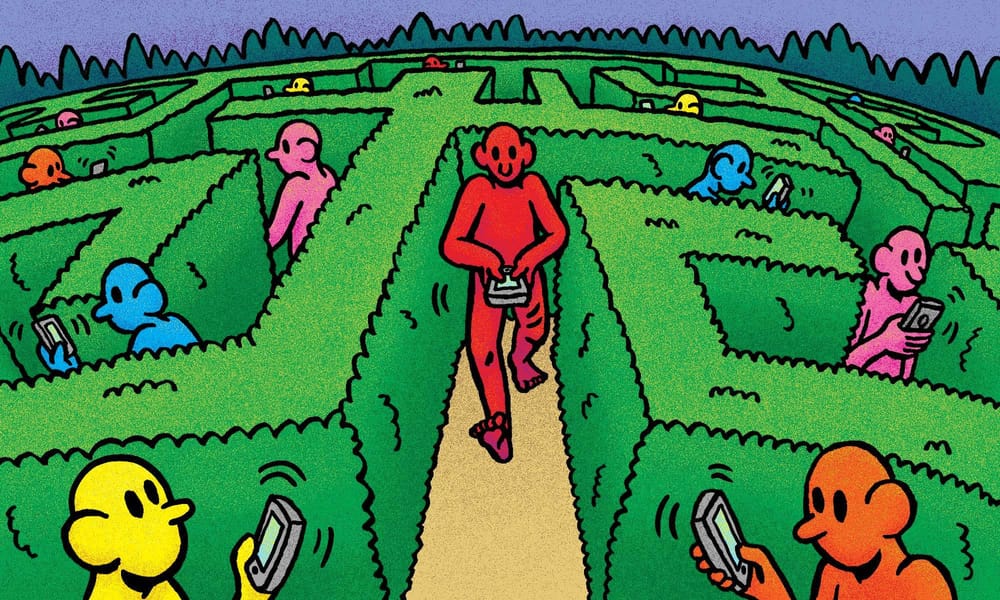In the face of the many seemingly unsolvable problems of the world, it takes courage, faith and determination to take on the role of a superhero. Colours of a Changemaker is a series of interviews with Black, Indigenous and People of Colour from around the world who are using their vocation to create social and environmental change. As Gandhi once said, we must be the change we want to see in the world, and these changemakers are doing just that through their art, music, written works, social platforms and much more.
Janaye Henry is a Māori comedian and actor who enjoys creating content for people who don’t often see themselves represented in the media. She currently works as a contributing writer and content creator for The Spinoff, an independent online magazine based in New Zealand. Henry also does stand up gigs and creates thought-provoking skits on her Instagram that generate conversation around issues she is passionate about such as body positivity, Māori culture and racism. I spoke to her about her creative process, Māori representation in media and her recent quest to learn te reo Māori.
How did you get into comedy and acting?
When I was a kid, my parents put me in every sport and I was just really bad at [them]. But my parents wanted me to learn how to be a part of a team. And after trying, I think, six different sports, they let me do drama just to still learn how to be a part of a team and an ensemble, and I just loved it. Ever since then, I’ve just continued to do different drama[-related] things and then I went to university and I studied theatre. Comedy happened by accident; my friends told me I should do it, so I tried it and people kept asking me to do gigs and I just kept showing up. It happened quite accidentally at the start and now I’m actively trying to do comedy. So yeah, I kind of fell into it.
What have been some breakthrough moments in your career so far?
There’ll always be gigs that I get now—comedy gigs— with people that I’ve really looked up to for a long time, and I’ll be on the same line up as them, and that always feels really surreal and really cool. That’s what’s been really amazing. I remember there was one specifically in my hometown, Total Nerd, that I was doing and the line-up was Michele A’Court, Eli Mathewson, and Tim Batt. They were all comedians that I really love and I got to emcee them, which felt so bizarre. And at the time I was like, “I don’t know if I’m the right person,” but it was such a fun gig. All the time there are things that happen [in my career] that don’t make sense to my brain, but it’s been really cool and really surprising.
I’ve seen your sketches on Instagram and I thought they were really funny. Can you walk me through your whole creative process of writing and creating those sketches?
Yeah, I think usually the idea is what happens first—or a conversation I want to have. A really good way that I write about stuff is I’ll find something that really annoys me, or it’ll just come up naturally—something will frustrate me—I’ll see a tweet that I don’t like, or I’ll hear an opinion that I’m not a fan of, and it’ll sort of rattle around my head for a bit. And then, my process always involves a walk: I go for a walk, and I just think about the idea for the whole walk. And by the time I’ve finished the walk, I’m ready to set up the tripod. I’ve decided in my head on two different characters—two perspectives—and I record them one at a time. So I’ll be character A and I’ll just record that for 10 minutes and then I’ll do the response of character B for 10 minutes, and then I edit it together. Thinking about it and deciding on the idea is the long part of the process, and by the time I’ve gotten to the filming, that’s pretty quick now.
You said your inspiration starts with something that you see that you’re annoyed with or that you’re not happy with. When you pick up these “controversial” topics, how often do you think about whether a sketch will offend someone?
Yeah, that’s a good question. Because I’m a Māori woman and a lot of the content I do is about Māori culture and respect [for it], I’m only ever worried about saying something wrong . . . if it affects Māori people. I actually don’t worry too much about the majority and what other people think because I know that the majority opinion isn’t always correct, and the stereotypes and the assumptions aren’t always correct. So I actually really don’t worry about what anyone has to say except for the people I’m trying to speak to or the people that I’m trying to do it for. It’s not always specifically targeted; it can be wider than that. I’ve got lots of videos about lots of things, but honestly, as long as my family are happy with it and I haven’t seen anything hugely offensive then yeah, I feel okay about it. I can’t worry about it because every video I do at least one person is annoyed.
I love that. So you were speaking about the two characters in your sketches, one of which is always an opposing, antagonistic character. Where do you find inspiration for that character?
Oh, that character is like a mishmash of real people I’ve met across my life. It’s funny because that character is actually not exaggerated. I’m never saying something out of that character’s mouth that I haven’t heard in real life before. So it’s a little compilation, if you will, of some of the worst interactions I’ve had and it’s put into one person and presented like that. I also think though, in some of them, I try to represent that you can be a good person, or think that you’re being a good person, and still hold offensive biases or opinions. And that’s the thing as well: I don’t want it to just be like I’m telling someone off; I want it to be a conversation and a discussion and something for people to think about, as opposed to me just being like, “this is the way you should think,” because that’s not how learning happens.
I like that you want it to be educational as well for whoever you’re targeting. In a broader sense, how do you use comedy to generate conversations around more serious or social justice topics?
I think there’s been a few times before where I’ve tried to start those conversations without comedy and no one listens to me—no one was listening. Then I realised through comedy that if you’re making people laugh, you can actually slip in your own [message] as you’re getting people to laugh. I think it’s been hugely important to use laughter also because the things I’m talking about—the issues—are quite heavy. For example, my most recent one about reverse racism... for people that have had those conversations, people who experience racism, it’s harmful to just constantly see a video about the hard side of the issue; it can be quite tiring. And while that content is also hugely important, I think sometimes it’s nice for it to feel a bit lighter. So if the video feels light [even if] the content’s heavy, I just think that’s quite a good balance to not scare people away.
Tell me more about the reverse racism skit. What’s the most important thing that people who claim to be experiencing reverse racism miss or fail to recognise?
I think there’s a general feeling when I have this conversation about reverse racism that I’m trying to diminish or take away from someone’s lived experience of hurt or a hurtful experience they’ve had. And I definitely don’t want to do that. I still want to acknowledge that you can definitely not experience racism and still be bullied, and you can definitely still experience discrimination and prejudice. But I think we just have to be careful [with] language because it’s not racism. So I think what’s missed is that I do still have an empathy for people who are experiencing hurtful things, and I still don’t condone that, I think that’s super what’s missed. Some people ended up blocked or deleted and [in] some of the comments, people were insinuating that I assume that if you’re White you can never experience harm. And that’s never what I’m trying to say because I know you can; it’s just not racism; that’s not the harm you’re experiencing.
They’re missing the systemic part of the equation, I guess.
Hugely . . . it’s different. It’s different if you call someone White in an insulting way; that doesn’t impact them in the wider world at all. Does that affect your educational opportunities? Does that affect the way other people see you? Does that affect what you get paid at work? No, it doesn’t. Whereas, when it’s in reverse, it feeds into a system that already holds power for certain groups. So yeah, I agree, the systematic thing is being missed as well.
You’re part Māori and part Pakeha (White). Has your mixed ethnicity affected the way people see you? The reason I’m asking is because you had a sketch about people asking you how Māori you are.
I think the way I talk about it is: I’m not half of anything, because I feel like it’s confusing when we get into fractions of who we are. I am Pakeha and I am Māori. I just am both of those things, in the same way that I have masculine traits and I have feminine traits. I’m a mix of both of those traits. When we get into equations, I do very much feel that I’m just two of one thing. But in my experiences with other people, I’ve never had anyone try to invalidate either part of my identity. I think the only person who ever tried to do that was myself. And then [I came] to terms with who I am on both sides; I do try to honour both sides of myself. And I think that’s why I find it quite easy and not taxing to have the conversations I’m having because I kind of do have a foot in each world. So I do feel like there’s a specific perspective, I guess. But I think from my perspective, the Pakeha world has a lot more work to do than my Māori world.
So I just want to switch gears into Māori in the entertainment industry. Can you talk about the first time that you saw yourself or a Māori person represented on TV, if you can remember? What did that feel like and did you feel properly represented?
The very first time I was quite young, and it was [the film] Whale Rider. I don’t know if you’ve seen that. It centres around a girl who wants to ride whales. I thought that I wanted to be the whale rider, because it was the first time that I’d seen myself on screen [even though] I’m really bad at swimming and I’m wary of the ocean. But it’s just because I’d never seen myself on screen before or anyone that looked that close to me at all. But then after that, the next memory I have is actually the movie Moana. That felt like a huge moment; I cried in the movies. It felt like such a huge moment—[and I should say that] there’s been heaps of New Zealand work created here as well that has represented a more accurate depiction of what the country looks like—but Moana felt huge because it was global; it was worldwide, and it was really exciting to see parts of Māori on the worldwide stage. So that was probably the most aware I was of how rare it was to see Māori on screen.
In the entertainment industry, there are a few prominent Māori entertainers, but not as many as I guess there should be. In your opinion, as someone who’s worked in this field, what are some of the barriers that Māori face when they’re trying to make it big in the entertainment industry?
Yeah. I think a lot of people that get to write the stories and make the stories and cast the stories are not Māori people. And so I think it’s a specific lens; it’s a different lens; it’s a different worldview. Personally, barriers I’ve found that I’ve had [are having] different values and different morals [around] why we’re creating a project and what’s important. In comedy, I’ve been told that laughter comes first and the thinking follows, but I disagree. I work on thinking first and laughter follows because to me, while people see comedy to laugh—and I know that’s meant to be the goal—I actually think it’s a lot more important that you’re intelligent in your comedy—well, not even intelligent, but kind. I think it’s a lot more important [to be] kind in your comedy. I would rather see a set that no one laughed at, but was nice than see some of the sets I have seen that are absolutely horrendous. . . . So I think the barriers are the other people in the industry, but also there’s not often space; there’s a mould that you’re meant to fit but the mould isn’t adapted to the person. And I think that’s a huge flaw.
I’m guessing it has something to do with White-centrism or Eurocentrism and not understanding Māori culture and Māori values.
Yeah. It’s just wild to me because it’s so obvious to me how beautiful Māori culture is and how rich the stories are and what a beautiful people Māori are. So it always feels confusing to me because I’m like “If you knew, you wouldn’t be able to make movies about anything else!” It’s incredible. So I agree, I think there’s a centring of Eurocentric values.
Speaking of the mould that you were talking about, as far as looks are concerned, the kind of beauty ideals that are sold to People of Colour are also extremely White-centred. Those standards are often unattainable for people of colour like myself and you. So do you have any thoughts on how Māori and Pasifika women are specifically affected by these White-centred beauty ideals?
I don’t know how to speak for all Māori, but I can speak for myself, which may be of some use. I remember that I thought for every formal occasion I’d have to straighten my hair. I thought if it wasn’t straight, it wasn’t tidy. And this was backed up by my first employer when I was 15: they were doing a performance assessment and evaluation, and for everything I had 10 out of 10, but for presentation and tidiness they put 7. And when I asked, they said, “Oh, your hair is messy,” but my hair was always tied up in a ponytail. It’s just that it’s frizzy because it’s my hair type. I also think that beauty standards now are so out of control that a lot of people across the board are not feeling up to scratch, but also—and I talked about this on Instagram before—I have darker body hair. I don’t know if you can see it, I have a little moustache. I think there’s like an expectation that that’s not right or that’s wrong. And I just think it all stems back to who we centre as our beauty ideals. Even body shapes, the way clothes are made: the values are hugely Eurocentric.
That’s a good point about the body hair and the facial hair. It’s so true because for lighter-skinned people with lighter hair, it’s not immediately visible that they have facial hair, which is not the case for darker-skinned people with darker hair—that’s something that I have experienced myself.
And people love to say, “Oh, you have such lovely thick hair,” but then they’re like, “Oh, but your moustache.” I’m like, “Yeah, it’s not a pick one. I have thick hair and I have a moustache.” You can’t expect thick hair and thin body hair; that’s not how it works.
So true. How do you fight those beauty standards?
I just wear what I think looks good. I don’t shave my moustache; I bravely wear my moustache—not bravely—I just wear my moustache. I just exist in the body I’m in. I think that the biggest act of revolution is I actually do just love myself; I do like who I am and I like how I look. And it’s confusing to people who strongly adhere to these standards; they can’t understand that. They can’t understand how I’m happy and content living life in my lane because they can’t imagine a life where you’re not constantly trying to be this thing. But I realised so young that I’m never going to be that, and I actually don’t want to be that. So I think I just live in my body and I love doing it. And I think that’s how I come up against it.
That’s awesome. Were you always this confident or did you have to evolve into this mindset of loving yourself?
I think as I got older, I got stronger, but my parents were really, really incredible. I always remember: in year 10, I came home from math and I was like “Dad, a boy called me fat.” And dad was like, “Yeah because you are fat and that’s fine.” . . . He’s like, “You just have fat . . . and that’s okay.” And it really took all the power out of the word because it wasn’t ever talked about as the bad thing. It was just very like, “Yeah but that’s who you are and that’s okay.” [My] mom [also said,] “That’s okay; it’s fine. It doesn’t mean anything; it doesn’t mean you’re a bad person, it just is.”
And I think the way that my parents were so cool and just radically accepted who I was all the time and were just like, “Yeah that’s who you are and it’s fine” has made me in many ways feel pretty untouchable when it comes to feeling insulted because I know who I am and I’m okay with it. Those kinds of words, such as fat only have power because we give them a lot of power because usually, it’s meant to mean a whole lot of things. It doesn’t just mean you have fat on your body. It means they’re implying you’re lazy or unmotivated or all these other things. Whereas my parents real quickly were like, “Okay, that’s fine. . . . yeah, sure it’s the descriptor. You also have arms, did he say that?” So I think it did start young and then as I’ve gotten older, it felt easier and more true all the time, because I think puberty is a wild ride for everyone.
That’s probably the best advice I’ve ever heard.
Yeah. Now I talk about it with dad and I laugh because . . I’m like, “That could have been so dangerous if that upset me,” but he’s like, “I never would have given it the opportunity to upset you because it just is true.”
I learned recently that you only started learning te reo Māori in the last year. Can you share why you were not able to learn it a bit earlier on?
Yeah. I guess the way that makes the most sense is it skipped a generation; the language skipped a generation. So, in my poppa’s [grandfather’s] generation, the language was beaten out of people at school which made a lot of people of that generation scared to speak it. So the generation above mine, it’s quite common that a lot of people missed te reo Māori, and therefore, my generation also didn’t get to learn. So yeah, it’s kind of one of those ripple effects. It’s weird, I kind of always knew that I would learn it at some point, and then that need felt quite urgent all of a sudden . . . so I just decided to go back, and its been really incredible—and hard—but so nice. So through my childhood, I wasn’t surrounded by it, which is a lot of people’s experience, but also there are a lot of Māori kids who do grow up around it, which is really cool. And I find it so wholesome when I hear kids speaking to their parents in te reo Māori. I love it so much.
And where are you learning it?
I went through Waikato University in Tauranga and did a course called Te Tohu Paetahi. And it was full time; it was nine till two-ish every day. Just like a full, immersive environment. But my class was incredible, so that made it way easier as well.
I saw another one of your sketches where you spoke about how te reo Māori is given importance for only one week of the year even though it’s recognised as an official language in New Zealand. Can you elaborate on that?
Yeah. We have Māori Language Week for which heaps of work is done by really cool Māori people to promote and share how awesome the language is. And some people just really don’t get it and think that the week isn’t needed or are like, “Why should the language be forced on us?” I’ve never understood it really. Also, it is only a week and it’s just funny [because] a lot of people kick up so much fuss about this one week [even though] it used to be a whole lifetime—it used to be “Māori Language Lifetime”—and now people are freaking out over a week. So I just would love to see more people start trying to learn te reo Māori full time. The journey is different if you are Māori and I respect that. As I mentioned, for some people, the loss of language was quite traumatic—it was very traumatic. So I think it’s a different journey, but I think if you’re an ally to the cause then that should be where you hit.
How has your learning journey been so far?
It has been humbling. I really thought I would learn it quite quickly and that’s just not been the case. I’d say I’m a confident beginner now. It really depends on the room I’m in, but yeah, I think I probably speak like a child who’s learning a language. I’m probably like a seven-year-old in terms of words I use, but it’s been cool and really nice to learn something new and something that is so hugely important to me.
I think it’s awesome that you are using your voice to speak up about social issues and what you feel passionate about, and to have that kind of vision at such a young age is incredible. Why is it important for more Māori people to come forward and use their voice?
I think now more than ever there are people listening, and maybe it’s always been like that and I just haven’t noticed, but I’ve always thought that if you keep talking or keep putting your message out there, eventually the right people will find it. And I think with that comes a sense of community. It’s really nice to have thoughts that you thought were just in your head validated. I think so many Māori people are doing so much work already in different ways, but I definitely think that if you have something to say, you should say it, maybe make a little video about it, but yeah, you should say it because I feel like there are people listening.
And how can people support Māori voices?
Making sure that your social media timelines are diverse. I think the easiest way is to just start listening—that's huge. Not expecting education for free is really important as well. And what I mean by that is, I’m relatively happy most of the time to reply to lots of messages that I get, but sometimes I’ll get people asking me stuff that they could Google. Supporting Māori creatives financially [is another one]—there are lots of Māori run businesses in New Zealand; you can Google them—that way you’re financially also putting your money where your mouth is and supporting those businesses too.
You can follow Janaye Henry on Instagram here, on Twitter here, and you check out more of her work here.


